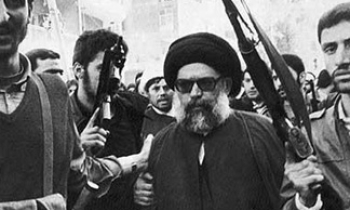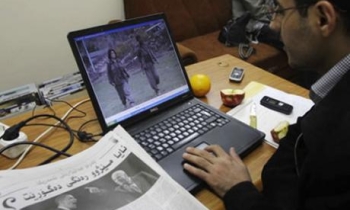BUENOS AIRES - When a provincial newspaper reported on a corruption scandal, the state government cut off its advertising. And when a well-known journalist's national TV show was canceled, he blamed the decision on economic pressures from Argentina's federal government.
Free press and civic activists here are expressing growing concern about subtle government censorship, especially as President Néstor Kirchner's administration has grown in power. A recent survey of journalists here said financial pressure by the government is the most potent threat to a free press in Argentina.
''This is the first time that the government has used information like merchandise, to be bought and sold,'' said Darío Gallo, editor of the magazine Noticias, considered a critic of the Kirchner government.
Kirchner and other officials have denied trying to censor the media, instead criticizing ''yellow'' journalism. They emphasize their right to disagree with the media.
Today, the media in Argentina are considered more ''free'' than in countries like Mexico and Colombia, where some journalists have been killed, said Carlos Lauría, Americas Program Coordinator for the Committee to Protect Journalists, a New York-based group that promotes press freedom worldwide.
SUBTLE PRESSURE
Still, he and other press advocates say some governments, including Argentina, are subtly pressuring the media and influencing coverage by either buying -- or not buying -- advertisements.
Editorials in newspapers such as La Nación and reporters from major papers, including Clarín and leftist Página 12, have complained about the lack of information and selective access to government officials and press events and the use of official advertising. The foreign press association here also has lamented the lack of willingness of the government to meet with its members.
Citizen Power, an Argentine group that promotes access to information, reported in 2004 that the government had more than doubled its spending on ''official'' advertising in 2004 from 2003.
During 11 months in 2004, the Argentine government spent more than $33 million in ads that range from public service announcements and requests for bids on government contracts to promotion of government accomplishments, the group said.
The problem, say Citizen Power and other civic groups, is when the government's decision on where to place the ads is not based on circulation or other normal standards but rather on an effort to reward or punish a news outlet for its reporting or opinions.
Journalists say this practice can lead to self-censorship. Last year, one of the country's best-known and often critical journalists, Jorge Lanata, accused the government of causing the cancellation of his TV show. He said government advertising on his station increased dramatically before it decided to cancel his program. He believes the government increased its advertising in order to increase its leverage over the station.
Some journalists complain of more direct pressure, even ''blacklisting'' of some political reporters.
On Monday, the Miami-based Inter American Press Association complained to the Argentine government that it has failed to explain the recent decision by the state-owned radio to cancel the program of José ''Pepe'' Eliaschev. His director said the change was part of a larger change in programming, but Eliaschev alleged censorship.
IAPA STATEMENT
''This latest action joins a long list of acts that show a disrespectful attitude by the Argentinean government towards press freedom,'' the 1,300-member IAPA said in a letter to the media secretary in Argentina, Enrique Raúl Albistur.
Repeated Miami Herald requests for interviews with the presidential spokesman, officials with the Ministry of Interior and Albistur, who is in charge of media strategy, went unanswered.
Kirchner and other government officials publicly have justified their advertising spending decisions as part of an effort to support a more diverse media instead of simply benefiting media giants.
Miguel Wi









